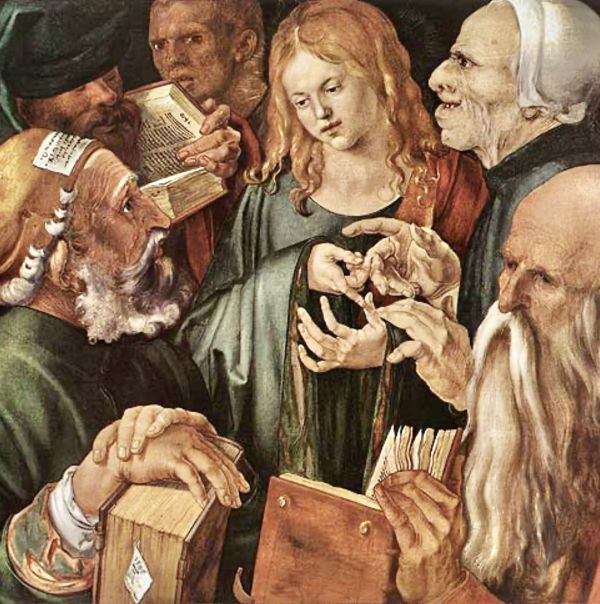Francis, the jester of God, after Grace had made him a new creature, preferred to the natural family the one given him by the Father of mercies.
Indeed, without hesitation, before the bishop of Assisi and all the onlookers, he stripped himself naked as a sign of abandonment, adding:
"Hitherto I have called you my father on earth; from now on I can say with all confidence: Our Father, who art in heaven, for in Him I have placed all my treasure and placed all my trust and hope" (FF 1043).
As if to say: «Did you not know that I must care for the things of my Father?» (Lk 2:49).
An eloquent response to the old world that let languish in its solace, preferring to taste the sweetness breathed at home in Nazareth.
Francis is in tune with the Holy Family: both in the personal and community dimensions developed around him.
In fact, he was nourished by poverty and simplicity, growing in age, Wisdom and Grace, before God and his beloved brothers.
He was submissive to every brother and sowed everywhere that extraordinary infused Wisdom, which comes to him from above, pure and yielding.
Mary accompanies him everywhere.
He clung to her at every important event, so much so that he called her the Advocate of the Order, she who had made our brother the Lord of Majesty.
And no less was Clare a part of the unique, silent Family of God, so fully that she received as a gift [by then ill and no longer able to go to church] to participate meaningfully in the Christmas Liturgy.
The Father of Mercies and the entire Nazarethian Family were with her.
The Sources inform us:
"At that hour of Christmas (1252), when the world rejoices with the angels for the newborn Child, all the Women set out for Matins to the place of prayer, leaving the Mother alone burdened with her infirmity.
And as she began to think of the little Jesus and was very sorry that she could not participate in the singing of his praises, she sighed and said to him:
"Lord God, here I am left alone for You!"
And suddenly the wonderful concert that was going on in the church of St Francis began to ring in her ears.
She heard the brothers psalm in jubilation, followed the harmonies of the singers, even perceived the sound of instruments.
The place was nowhere near enough to humanly perceive those sounds: either that solemn celebration was made divinely audible to her, or her hearing was strengthened beyond all human possibility.
Indeed, which surpasses this prodigy of hearing, she was worthy to see even the Lord's crib.
When, in the morning, the daughters came to her, the blessed Clare said:
"Blessed be the Lord Jesus Christ, who did not leave me alone, when you abandoned me!
I have indeed heard, by the Grace of Christ, all those ceremonies that were celebrated this night in the church of St Francis" (FF 3212).
In the communities of Francis and Clare of Assisi, the spirit of the Family of Nazareth fermented, expert in suffering but also a place of genuine virtue. Clare, as 'another Mary', meditated in her heart on all the Mysteries of the Son of God.
Immaculate Heart of Mary (Lk 2:41-51)












